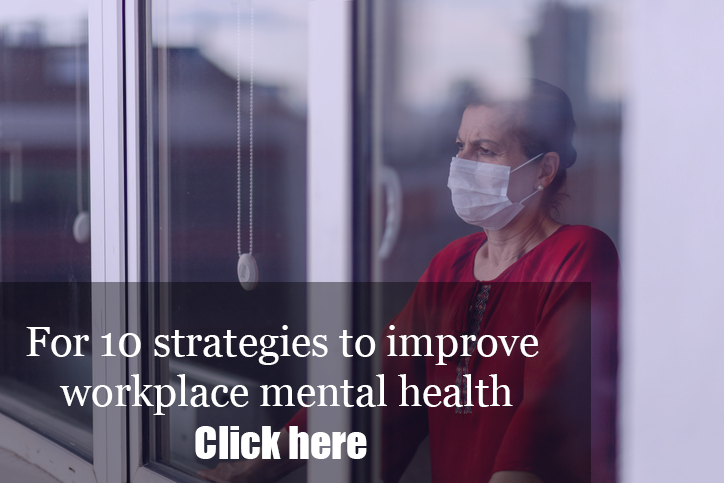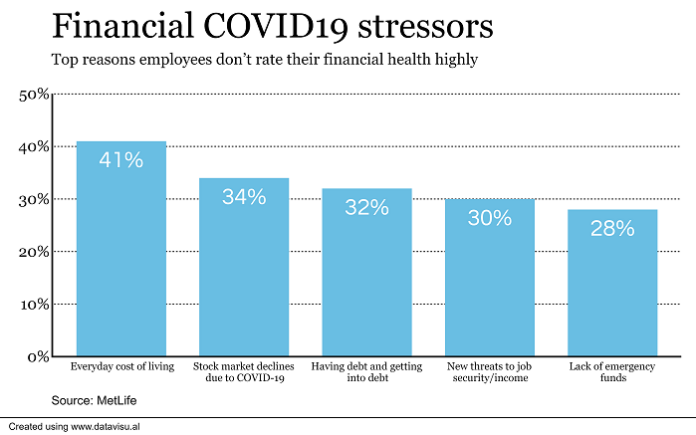Not only are workers reporting significantly worse mental health due to the pandemic, but a growing number of employees are also worried they will be fired if they mention their growing stress.
The startling information comes from Paychex, which finds that 30% of employee respondents feared that discussing their mental health could lead to being fired or furloughed and that 29% thought discussing their issues could cost them a promotion.
Meanwhile, only one in five employees discussed their mental health with a supervisor, and just 5% said they spoke with an HR representative, according to the payroll firm’s survey of 1,017 employees.
The fear attached to facing negative repercussions for discussing COVID-19 stress may be due to the economic landscape of COVID-19, says Heather Pulver, Paychex HR coach. “Our study found that over one-third of employees are looking for backup jobs, while three in 10 are learning new job skills to stay competitive. In a more competitive job environment, employees may fear that admitting to being stressed right now could damage their standing with their current employer.”
Ideally, employees should be comfortable discussing their COVID stress or mental health issues openly with their employers, she says.
 “Employees should feel they are working in an open and inclusive environment where sharing such information is encouraged and acceptable,” Pulver says. “Managers should cultivate a relationship based on trust with their employees so that employees can come to them with concerns and feel confident that their confidentiality will be maintained.”
“Employees should feel they are working in an open and inclusive environment where sharing such information is encouraged and acceptable,” Pulver says. “Managers should cultivate a relationship based on trust with their employees so that employees can come to them with concerns and feel confident that their confidentiality will be maintained.”
The Paychex study also finds that 40% of employees say their company hasn’t provided adequate policies or procedures to address health and wellbeing during the pandemic.
The data is the latest to paint a dismal picture of employees’ mental health during the pandemic. Research from FlexJobs, fielded in partnership with Mental Health America, for instance, finds that 75% of employees say they’re experiencing burnout at work. And research from Total Brain found that the risk for depression among U.S. workers has risen a whopping 102% as a result of the coronavirus pandemic–and 305% for workers aged 20-39.
Related: Depression risk is soaring for workers. How can HR help?
While a number of employers have rolled out programs to help, there is much work to be done.
Pulver says allowing on-site employees to work remotely–in any fields where that may be possible– would be the most beneficial mental health policy. (Paychex finds that in-office employees report higher stress levels than their remote counterparts.) Other measures employers can consider include allowing for flexible or modified schedules, encouraging more work/life balance and providing clear communication regarding their plans to deal with any COVID-19-related business issues.
Related: 10 strategies to improve employees’ mental health
These measures could go a long way toward alleviating some of the heightened stress many of their employees are currently experiencing.
It’s also important to provide employees with the option to discuss concerns with an unbiased partner. This could be accomplished by a relationship with an employee assistance program or other third-party vendors to meet the needs of employees who are experiencing issues, Pulver says.
“The importance of establishing an environment of trust and commitment has been heightened, and employers have been tasked with finding new ways to ensure their workers feel secure and valued in their positions.”



